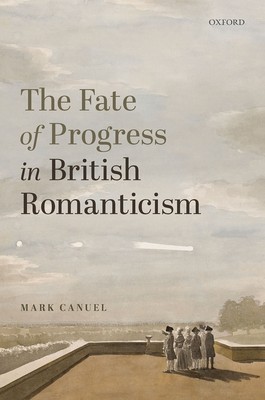
- We will send in 10–14 business days.
- Author: Mark Canuel
- Publisher: Oxford University Press, USA
- ISBN-10: 0192895303
- ISBN-13: 9780192895301
- Format: 16.5 x 23.8 x 2.2 cm, hardcover
- Language: English
- SAVE -10% with code: EXTRA
Reviews
Description
What did Romantic writers mean when they wrote about progress and perfection? This book shows how Romantic writers inventively responded to familiar ideas about political progress which they inherited from the eighteenth century. Whereas earlier writers such as Voltaire and John Millar likened improvements in political institutions to the progress of the sciences or refinement of manners, the novelists, poets, and political theorists examined in this book reimagined politically progressive thinking in multiple genres. While embracing a commitment to optimistic improvement--increasing freedom, equality, and protection from injury--they also cultivated increasingly visible and volatile energies of religious and political dissent. Earlier narratives of progress tended not only to edit and fictionalize history but also to agglomerate different modes of knowledge and practice in their quest to describe and prescribe uniform cultural improvement. But romantic writers seize on
internal division and take it less as an occasion for anxiety, exclusion, or erasure, and more as an impetus to rethink the groundwork of progress itself.
EXTRA 10 % discount with code: EXTRA
The promotion ends in 15d.18:28:38
The discount code is valid when purchasing from 10 €. Discounts do not stack.
- Author: Mark Canuel
- Publisher: Oxford University Press, USA
- ISBN-10: 0192895303
- ISBN-13: 9780192895301
- Format: 16.5 x 23.8 x 2.2 cm, hardcover
- Language: English English
What did Romantic writers mean when they wrote about progress and perfection? This book shows how Romantic writers inventively responded to familiar ideas about political progress which they inherited from the eighteenth century. Whereas earlier writers such as Voltaire and John Millar likened improvements in political institutions to the progress of the sciences or refinement of manners, the novelists, poets, and political theorists examined in this book reimagined politically progressive thinking in multiple genres. While embracing a commitment to optimistic improvement--increasing freedom, equality, and protection from injury--they also cultivated increasingly visible and volatile energies of religious and political dissent. Earlier narratives of progress tended not only to edit and fictionalize history but also to agglomerate different modes of knowledge and practice in their quest to describe and prescribe uniform cultural improvement. But romantic writers seize on
internal division and take it less as an occasion for anxiety, exclusion, or erasure, and more as an impetus to rethink the groundwork of progress itself.


Reviews